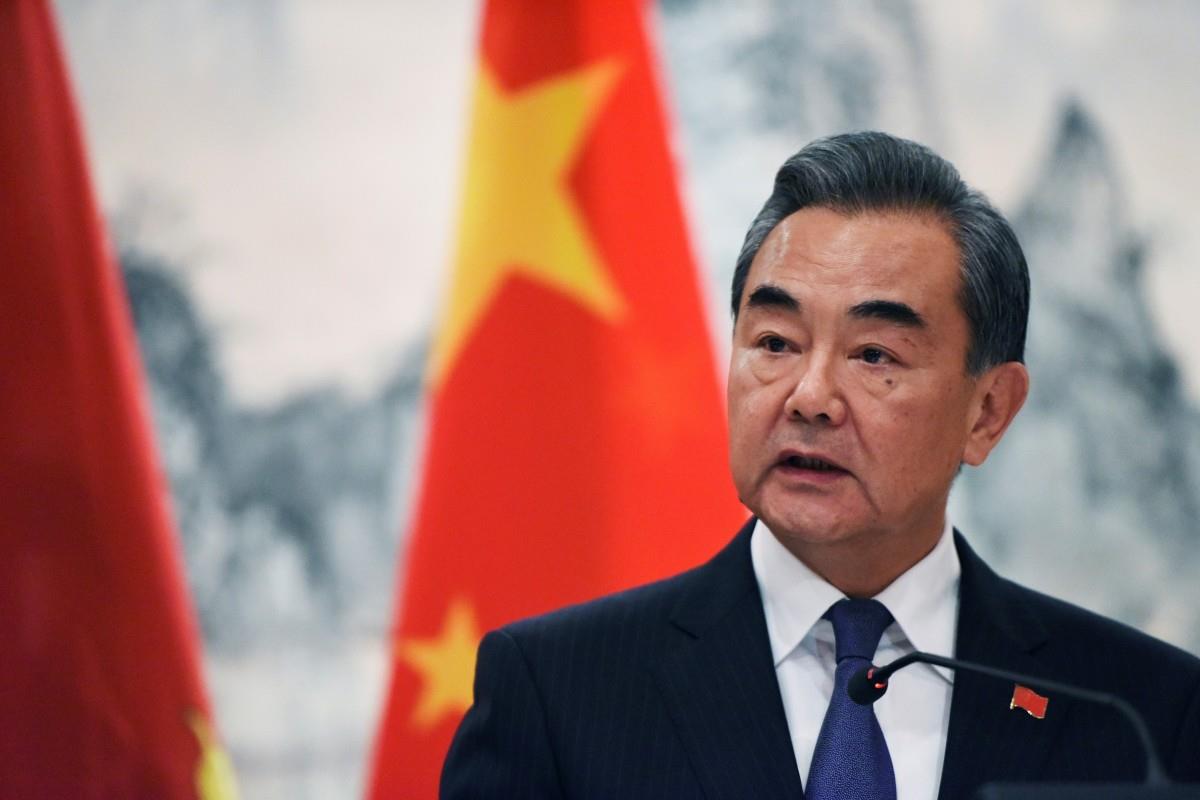BEIJING, Oct. 17 (CGTN) - The recent diplomatic interactions with Southeast Asian countries have enhanced unity between China and the Association of Southeast Asian Nations (ASEAN) and deepened the cooperation of regional anti-pandemic fight, Chinese State Councilor and Foreign Minister Wang Yi said Friday.
He made the remarks in an interview with Xinhua after holding talks last week with Luhut Binsar Pandjaitan, Indonesian president's special envoy, and Philippine Foreign Secretary Teodoro Locsin in southwest China's Yunnan Province, and wrapped up Friday his Southeast Asia tour, which has taken him to Cambodia, Malaysia, Laos, Thailand and Singapore.
This is Wang's first tour to Southeast Asian countries in the context of the normalization of epidemic prevention and control.
Strengthen unity
The Chinese foreign minister believes that his visit has first of all enhanced the unity between China and the ASEAN.
"We have exchanged views and reached a series of consensus on major issues, such as jointly responding to the challenge of the COVID-19 pandemic and the evolving international situation, deepening bilateral relations, maintaining regional peace and stability, and improving the global governance system," Wang said.
He noted that all parties should further enhance mutual trust and solidarity, and continue to push forward the development of relations between China and ASEAN countries, so as to bring them to higher levels.
Deepen cooperation
Furthermore, cooperation on the fight against the pandemic has been deepened, Wang said.
It is agreed that East Asia has made outstanding achievements in combating against COVID-19, which comes from countries' commitment to putting the people first, taking scientific epidemic prevention measures, sticking together and providing mutual assistance and support, Wang said.
All parties should improve the level of joint prevention and control against the pandemic, enhance the exchange of prevention and treatment experience, and strengthen cooperation in vaccine research and development, production and use, he added.
China, Wang said, will continue to help ASEAN countries to prevail over the pandemic, including providing necessary anti-epidemic materials, carrying out cooperation on vaccine, assisting the establishment of nucleic acid testing laboratories, supporting ASEAN in launching an anti-epidemic fund, and establishing repositories for emergency medical supplies.
According to Wang, the Southeast countries have spoken highly of China's vaccine research and development and expressed the hope to conduct all-dimension cooperation with China in vaccine research and development, purchase, production and use.
On the issue concerning the life and health of all mankind, the international community should cooperate with each other, he said, adding "We should not fight alone, still less monopolize resources."
Noting that China is one of the frontrunners in vaccine development, Wang said China has shared the genetic sequence of the virus with the World Health Organization in a timely manner at the early stage of the epidemic, creating the necessary conditions for global vaccine development.
China has made it clear that it is willing to make efforts within its capacity in vaccine development, and give priority to the needs of developing countries including the Association of Southeast Asian Nations (ASEAN) countries, he added.
Promote economic recovery
Thirdly, the economic recovery in post-pandemic era was promoted, Wang noted.
"All parties have spoken highly of China's major anti-epidemic achievements and its progress in the resumption of work and production, and they look forward to and believe that China will continue to be the main engine driving global economic recovery," Wang said.
They all hope to take the opportunity of China's "dual circulation" development pattern and dock China's Belt and Road Initiative with their own countries' development strategies, so as to embark on the fast track of post-pandemic economic recovery as soon as possible, he said.
Enhance regional peace and stability
The fourth is that the visits have strengthened regional peace and stability, said Wang.
In the face of foreign forces stirring up trouble and creating tension in the South China Sea, Wang noted that the Chinese side has emphasized that the South China Sea should not become a sea for great powers to play games or for gunboats to overrun, which is generally recognized by all parties.
The countries agreed to resolve differences through friendly consultation, fully and effectively implement the Declaration on the Conduct of Parties in the South China Sea as well as endeavor for an early conclusion of a more binding and effective Code of Conduct in the South China Sea, and jointly safeguard peace and stability in the region, he added.
Safeguard international equity
Fifth, the visits have safeguarded international equity and justice, Wang said.
He said that the countries have expressed the need to oppose power politics and unilateral bullying, uphold the basic norms of international relations, firmly practice the concepts of multilateralism and win-win cooperation, and make joint efforts to promote democratization of international relations and multi-polarization of the world.
